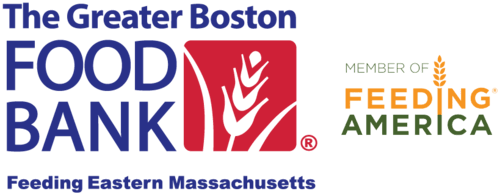The Greater Boston Food Bank’s Statement on
Release of HEALS Act
The Greater Boston Food Bank’s Statement on Release of HEALS Act
The Greater Boston Food Bank (GBFB) is concerned that the recently released HEALS Act, the U.S. Senate proposal for the next federal stimulus package, falls short of what is needed to help hungry families in Eastern Massachusetts. Specifically, the bill does not include a necessary 15 percent increase in the maximum Supplemental Nutrition Assistance Program (SNAP) benefit. Not boosting SNAP benefits, the first line of defense against hunger in our nation, is a missed opportunity to support families struggling with hunger – many for the first time – during this pandemic and the unprecedented economic downturn.
SNAP is vital to the work of Feeding America’s network of 200-member food banks and 60,000 pantries and meal programs – which GBFB is a member. Last year, GBFB distributed over 57 million meals across Eastern Massachusetts and due to the pandemic, we are on pace to distribute well over 83 million meals this year. Yet for every meal the Massachusetts food banks provided, SNAP provided 5. SNAP is an efficient and cost-effective way to help meet that need and stimulates local economic activity. During the last recession, for every dollar spent on the SNAP program, $1.70 was generated in the economy. SNAP can be an important economic boost for the entire Commonwealth of Massachusetts, as nearly 900,000 residents rely on this vital nutrition program and the state has seen a 20% increase in SNAP applications since March.
In addition, this bill does not include the necessary commodities and capacity support that will allow food banks to continue to meet the demand that is taking place in their communities. Here in Eastern Massachusetts, our partners are experiencing a 114% increase in people served compared to last year, a majority are new people who have never sought food assistance before. Without critical investments in food, funds to transport and store the increased food, and the capacity to feed millions more families during this economic downturn, food banks like GBFB will not be able to meet the growing meal gap. Over the last 5 months, GBFB has seen food distribution increase by an average of nearly 70% over last year, with food insecurity estimated to increase by 59% through the end of the year in our region.
The bill also does not include Pandemic EBT, a program which allows states to provide resources on an EBT card to participants in free and reduced-price lunch when schools are closed. With schools in Eastern Massachusetts closed and concerned about safely reopening this fall, millions of children are at home and unable to receive one of the most reliable sources of nutrition they can count on each day through the school meals program. Pandemic EBT ensures families are receiving much needed support to provide their children the nutritious food they need during this difficult time.
Feeding America estimates that an additional 17.1 million people could be food insecure in 2020 as a result of the pandemic, totaling 54.3 million people struggling against hunger – including 18 million children. GBFB and other community resources cannot meet the need on their own. Charity, business, and the government must work together to ensure that families in this country – many of whom are facing hunger for the first time due to this pandemic – are not forced to choose between putting food on the table or a roof over their head. We stand ready to work with Senator Elizabeth Warren (D- MA) and Senator Ed Markey (D- MA) to ensure that a final stimulus bill includes a boost to SNAP benefits and other improvements that will help millions of people facing hunger.
GBFB believes everyone has a role in ending hunger and Congress must play their role at this historic moment.
